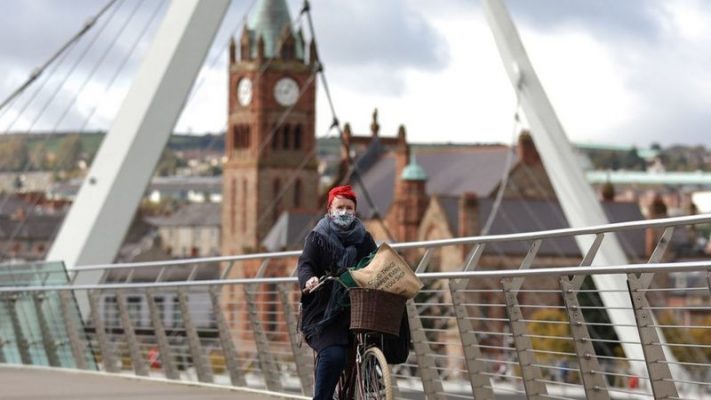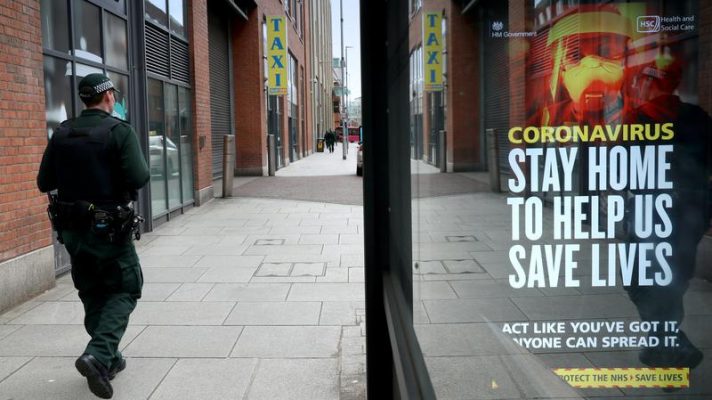 AN order for people in the North of Ireland to stay at home – to stop the spread of COVID-19 – will become legally enforceable from this Friday, January 8.
AN order for people in the North of Ireland to stay at home – to stop the spread of COVID-19 – will become legally enforceable from this Friday, January 8.
The Stormont Executive agreed the move after it met on Tuesday evening and tightened other measures.
It will mean people can only leave home for medical or food needs, exercise and work that cannot be done from home.
The North of Ireland is in the second week of a six-week lockdown in which non-essential retail is closed along with close contact services.
Ministers also agreed to a proposal from Health Minister Robin Swann to reintroduce enforcement powers for the PSNI to order people to go home if they are engaging in prohibited activity.
Speaking after the meeting, First Minister Arlene Foster said people should not wait for the regulations to take effect and insisted people should already be staying at home.
Deputy First Minister Michelle O’Neill said Northern Ireland faced a “difficult period ahead”, but that the interventions were necessary.
However, she said the Executive had not reached agreement on whether GCSE or A-level exams should go ahead, and that further meetings would need to take place later this week.
“We will also have an urgent meeting convened tomorrow with faith groups, hopefully moving them all to online services,” she added.
Under the new restrictions, indoor and outdoor gatherings will be reduced from 15 people to six and only from two households, which will include children under 12 – exemptions will apply such as support bubbles.
People will no longer be allowed to meet with other households in private gardens, although similar exemptions will apply there too.
However, people will be allowed to take exercise outdoors with one person from another household.
The Executive also supported a proposal from the health minister to make it a requirement for all employers to conduct a risk assessment where employees are required to work away from their home.
Ministers agreed the measures will last until 6 February, and be reviewed along with other lockdown measures on 21 January.
Many pupils will not return to school until after the half-term break in mid-February, with nursery, primary and post-primary schools carrying out remote learning until then.
However, ministers agreed that special schools will remain open as usual.
Vulnerable children and children of key workers will have access to schools for supervised learning.
Childcare settings will be allowed to remain open and childminders can continue their services.
Payments to parents of children who receive free school meals will also continue, the Department of Education has confirmed.
Discussions on exams took place, but ministers agreed to revisit this issue.
 Education Minister Peter Weir said: “Work is ongoing on this issue as a matter of urgency and I intend to provide further clarity in the next couple of days.
Education Minister Peter Weir said: “Work is ongoing on this issue as a matter of urgency and I intend to provide further clarity in the next couple of days.
“Until and unless any announcement is made, students should expect to continue to sit scheduled examinations.”
On Tuesday evening, Economy Minister Diane Dodds said “further flexibilities” would be put in place for January exams and assessments, particularly in relation to BTecs.
She said: “Learning centres, including further education colleges, schools and training providers, will be afforded additional discretion to determine whether it is appropriate for learners to sit the scheduled BTec exams in January, taking into consideration a range of factors including health and safety and the personal circumstances of their learners.”
Tags:




